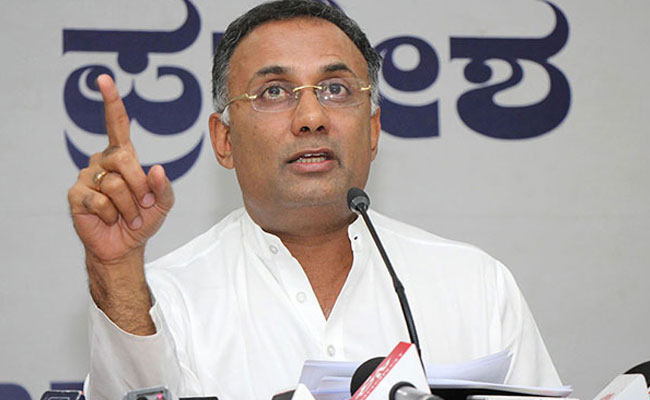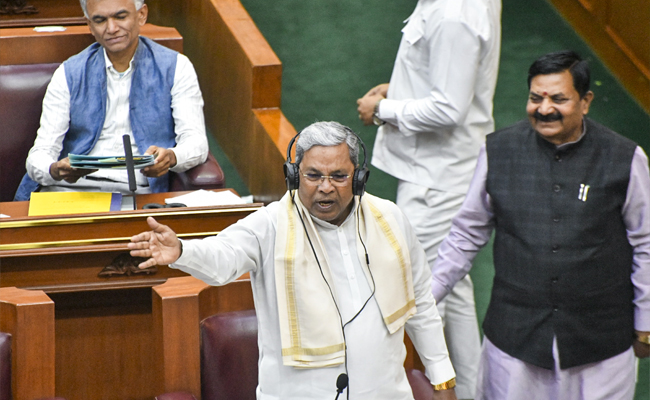Chennai, Feb 2: A section of the Madras High Court Bar association has opposed the Supreme Court collegium's recommendation to elevate advocate Lekshmana Chandra Victoria Gowri for judgeship at the Madras HC and demanded her recall.
In separate letters addressed to President Droupadi Murmu and the Supreme Court collegium, the group of advocates objected to the collegium's recommendation saying her appointment would undermine the independence of the judiciary.
Gowri, by her own admission, is the general secretary of the Bharatiya Janata Party Mahila Morch, the memorandum signed by 22 lawyers including senior advocates N G R Prasad, R Vaigai, Anna Mathew, D Nagasaila and Sudha Ramalingam, said.

"We write with a sense of foreboding, in these troubled times, when the judiciary is facing unprecedented and unwarranted criticism from the executive, as we are apprehensive that appointments such as these may pave the way for undermining the independence of the judiciary," the memorandum said.
It is extremely critical, at this juncture, to safeguard the institution from being weakened by its own administrative action, it said.
The collegium, comprising Chief Justice D Y Chandrachud, Justices Sanjay Kishan Kaul and K M Joseph had on January 17 proposed the names of Gowri and four other lawyers for elevation to the high court.
The Madras High Court Bar members alleged that Gowri's regressive views are completely "antithetical to foundational constitutional values and reflect her deep-rooted religious bigotry making her unfit to be appointed as a high court judge."
The collegium's recommendation of a person who harbours such strong antipathy towards the minority community is disturbing, to say the least, it stated.
Any person spewing vitriolic comment of the nature ought to be prosecuted under sections 153 A, 153 B, 295 A and 505 of the IPC, the advocates claimed.
In order to substantial their claims, the advocates cited youtube links of her two interviews captioned "The more threat to national security and Peace? Jihad or Christian Missionary? and Cultural genocide by Christian Missionaries in Bharat - Victoria Gowri."
They also cited an article titled "Aggressive baptising destroying social harmony" published on October 1, 2012 in a RSS publication.
Let the Truth be known. If you read VB and like VB, please be a VB Supporter and Help us deliver the Truth to one and all.
Belagavi (PTI): Accepting that the female foeticide has not stopped in the state, Karnataka Health Minister Dinesh Gundu Rao on Tuesday said that the government is taking strict measures to prevent it.
The minister said the government is appointing separate nodal officers in all districts and tightening measures to prevent foeticide, which he called a "social evil".
He also assured that the government will consider strengthening legislation to control such activities.
The minister was responding to a question by BJP MLC C T Ravi in the Legislative Council.
"Female foeticides have certainly not stopped. If you look at the sex ratio, there is a lot of difference. I accept that this is happening," Rao said.
"Foeticides are not happening under pressure; voluntarily, it is happening, for not wanting a girl child. These things are happening based on the sex determination of the foetus at some hospitals. Sex determination is illegal, but with the advancement in technology, portable ultrasound machines have been developed, which can be easily carried anywhere, and scans and tests can be done. This needs to be controlled. We will bring it to the notice of the central government," he said.
In some districts and in a few hospitals, a higher number of male child births is happening. It is found with the help of intelligence input, the minister said.
"Information is being gathered on the taluk in which the male-female ratio is worsening, what is happening in which hospital, and appropriate action is being taken to crack down on such a network, after proper evaluation."
Decoy operations have been done at seven places in the last two years, to identify those involved in illegal activities linked to female foeticides, and actions have been taken against officials and hospitals involved, he said, adding that more needs to be done on priority.
Responding to a question by Ravi about whether any stringent legislation is being brought, Rao said, the government will consider strengthening the legislation and making it stricter to control this.
"Some amendments have been made to the existing laws in the last two years....advanced technology and the internet is being used to carry out such things, also oral medicines for abortions are available over the counter.
We need to look into bringing legislation to control them. The Food and Drug Administration has issued instructions to pharmacists that the sale of such drugs should be documented."
The minister also said that measures are also being taken for the effective implementation of the Pre-Conception and Pre-Natal Diagnostic Techniques (PC & PNDT) Act, and awareness is being created against the identification of female foetuses and female foeticide.





